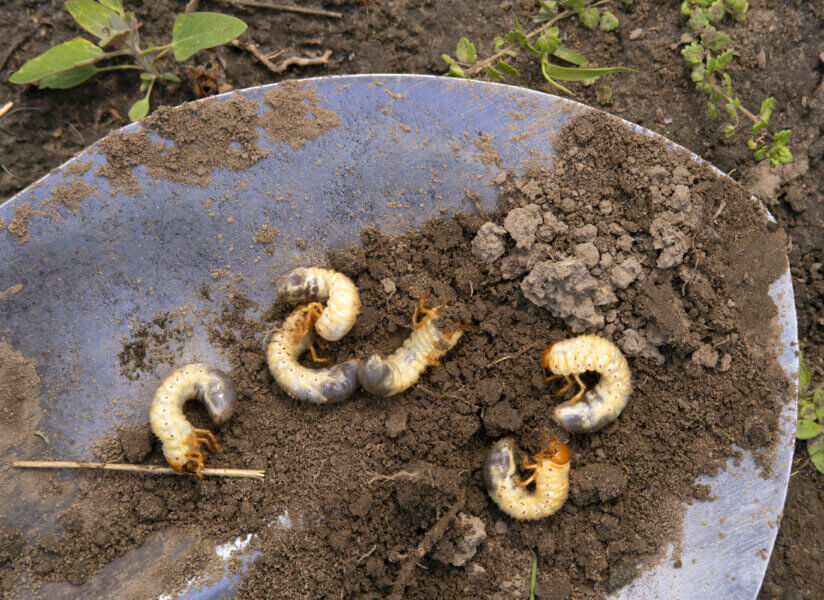
Tips for Protecting Your Florida Lawn from Sod Pests
Florida’s year-round warm temperatures and humidity create the perfect conditions for growing a lush, green lawn. Unfortunately, those are the same conditions that many sod pests thrive in. If you don’t proactively keep these pests under control, you can end up with dead and unsightly patches in your lawn.
Here are some of the main pests you must contend with in Florida, methods to protect your yard, and when to call a professional.
Common Sod Pests in Florida Climate
Lawn Chinch Bugs
These are one of the sod pests in Florida. They’ve built up a chemical resistance to treatments, making them harder to eliminate. They feed on the sap in blades of grass, and while they do that, they inject toxins into the grass. This prevents water absorption, causing the grass to turn yellow and die. People often mistake a chinch bug infestation for drought and overwater their lawn, which doesn’t help. Managing chinch bugs can be especially challenging if you have a St. Augustine grass lawn.
Armyworms
These caterpillars can devastate a Florida lawn in a short amount of time. The fall armyworm, hows up in late summer and early fall. These pests travel in large groups and quickly consume a vast stretch of grass. Your lawn might appear thin, with chewed or missing grass blades. They love warm-season grasses like Bermuda and St. Augustine.
Grass Grubs
Grubs are the larvae of various types of Florida beetles, such as June beetles and masked chafers. These bugs lay their eggs underground, and when they hatch, the grubs feed on the roots of your grass. If your turf becomes loose and easy to pull up, it could be a grub infestation. Grubs are most active in late summer and early fall, before they hatch into larger insects. Birds and other wildlife find grubs tasty, so they can do additional damage to your lawn while digging them up. Like the different pests, they love Florida’s warm-season grasses.
Sod Mole Crickets
Mole crickets are another major sod pest that can wreck your lawn in Florida. These crickets burrow underground and dig tunnels through your turf, much like the moles named after. This can disrupt the soil structure, making erosion more of a problem for your lawn. They also feed on the root structure of your lawn, which leads to thinning turf. St. Augustine, Bermuda, and Bahia grass strains are susceptible to mole crickets.
Preventive Measures for a Pest-Free Lawn
The healthier your lawn is, the more resistant it will be to sod pests, weeds, and other problems. Taking good care of your lawn helps make it more likely to survive when pests show up. A deep and infrequent watering schedule works best for Florida lawns. Overwatering can attract pests and lawn fungal diseases. Regular mowing to keep your grass at the correct height will deter pests. Applying balanced fertilizers can also strengthen your sod’s resistance to pests.
Aerate the soil in your lawn once a year, preferably in the spring or early summer. This encourages root growth and improves water absorption. Applying organic compost will also help to keep the soil fertile and encourage healthy grass growth.
Inspect your lawn regularly so that if pests do show up, you can deal with them before they become a larger problem. Brown patches or wilting grass can be signs of a blooming infestation. You might have a grub infestation if you notice more birds pecking at your lawn.
When is it Time to Call a Lawn Care Professional?
If large sections of your grass are turning brown, thinning, or completely dying, it’s probably time to call a pest control professional. If you contact a licensed lawn care professional or pest control specialist early, you can save your lawn from further damage.
Contact Us if You Need New Sod
If a pest situation gets too out of control, you may have to start over with new sod entirely. We recommend our Empire Turf for most Florida homeowners because it is specifically resistant to chinch bugs. We also have several varieties of St. Augustine, Bahia, and other types of sod available for Orlando and South Florida residents from Duda Sod. Contact us today if you have any questions!